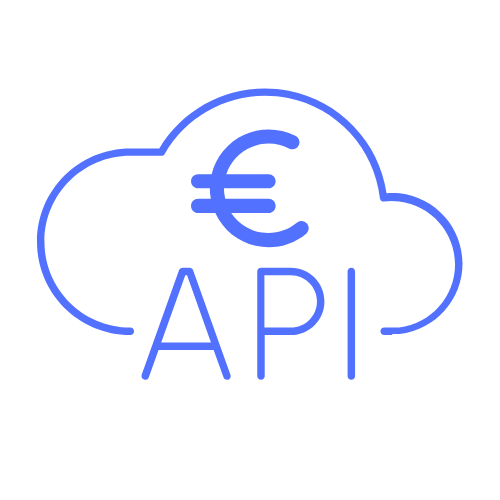Open Banking Limited (OBL) – the Implementation Entity described in the CMA Order – built the UK’s world-leading Open Banking Standard and industry guidelines to drive competition, innovation and transparency in UK retail banking.
What You’ll Discover in This Blog:
🗸 Understanding Open Banking Standard 4.0
🗸 Reasons for Changes in Standards
🗸 Role and Contributions of Open Banking Limited (OBL)
🗸 Key Functional Changes in Open Banking Standard 4.0
🗸 Impact on Stakeholders
🗸 Future Trends
🗸 How Finexer Can Help
Introduction
In the ever-evolving world of financial technology, the introduction of the Open Banking Standard 4.0 represents a pivotal moment for businesses and consumers alike across the UK. With its commitment to fostering innovation, enhancing regulatory compliance, and improving user experiences, this latest update ushers in a new era of financial services.
Why Are UK Open Banking Standards Changing?
1.Retirement of FAPI 1 Implementers Draft 2:
The OpenID Foundation (OIDF) has announced the retirement of FAPI 1 Implementers Draft 2.
After 31 March 2025, certifications for this version of the security profile will no longer be available.
Continued use of this deprecated standard would lead to non-compliance with international security protocols.
2.Mandatory Changes to CHAPS Payments by the Bank of England:
The Bank of England has mandated the use of ISO 20022 message standards for CHAPS payments.
Enhanced and enriched data must be included in these payments.
These changes are essential for ensuring compliance with FCA regulations and maintaining the integrity of the UK banking ecosystem.
Who Are OBL?
History and Purpose of OBL
- Established in 2016:
- Founded by the UK’s nine largest banks.
- Created under the directives of the Retail Banking Market Investigation Order by the UK’s Competition and Markets Authority (CMA).
- Response to PSD2:
- Formed in response to the Payment Service Providers Directive (PSD2) across Europe.
- Aims to foster competition, innovation, and transparency within the retail banking sector.
- UK as a Global Leader:
- Positions the UK as a global leader in the open banking movement.
- Enhances the financial services landscape by making API data accessible to third-party providers (TPPs).
What They Do?
Framework and Standards:
Designs the framework and standards governing open banking in the UK.
Operates under a pro-competition mandate.
Promoting Open Banking:
Promotes open banking within the ecosystem.
Collaborates with major banks, fintech companies, and consumer groups.
Governance and Compliance:
Linked to the CMA, ensuring adherence to strategic directions and budget allocations.
Manages the governance of CMA9 requirements.
Technical Assistance and Security:
Supports the ecosystem through technical assistance.
Maintains security standards.
Dispute Resolution:
Facilitates the resolution of disputes and complaints within the open banking community.
Key Functional Changes in Open Banking Standard 4.0
FAPI 1.0 Advanced Migration 
- Migration from FAPI 1.0 Implementers Draft 2 to FAPI 1.0 Advanced Final.
- Enhances security measures and aligns with global financial API standards.
- Full deprecation of the older version by the end of 2024.
- Marks a significant step towards more robust financial data interactions.
Adoption of ISO 20022 
- Aligns with ISO 20022 messaging standards.
- Includes mandatory fields to meet the Bank of England’s CHAPS requirements, effective from 1 May 2025.
- Facilitates broader compatibility with international payment systems.
- Ensures enhanced data clarity and reduces transaction delays.
Operational and Customer Experience Guidelines
- Updates provide detailed guidance on FAPI, TRI, and support for information flow changes.
- Covers scenarios related to common errors.
- Offers new strategies for managing long-lived consents and handling significant system changes.
- Aims to streamline operations and improve end-user interactions.
Lets Compare
| Feature | OBL 3.0 | OBL 4.0 |
|---|---|---|
| Security Enhancements | Utilised FAPI 1.0 Implementers Draft 2 for security. Basic compliance with PSD2 and other security protocols. | Upgraded to FAPI 1.0 Advanced Final. Enhanced alignment with global security best practices, providing stronger protection against emerging cyber threats. |
| CHAPS Payments | Limited support for CHAPS payment enhancements. Basic data requirements. | Mandatory ISO 20022 message standards for CHAPS. Enriched data fields for compliance with the Bank of England’s regulations. |
| API and Technical Specifications | Basic API functionalities for read/write operations. Initial steps towards improving system performance. | Refined API specifications addressing known issues. Improved system performance, definitive payment statuses, and consistent error messaging. |
| Customer Experience | Fundamental guidelines for customer interactions. Limited support for long-lived consents and error scenarios. | Comprehensive operational and customer experience guidelines. Detailed guidance on FAPI, TRI, and strategies for managing long-lived consents. |
| Impact on Stakeholders | Initial framework for stakeholders, primarily focusing on compliance and basic functionalities. | Enhanced functionalities impacting a broader range of stakeholders, including CMA9 banks, tier 1 and 2 banks, and TPPs. New features like Variable Recurring Payments (VRP). |
Impact on Stakeholders
Impact on CMA9 Banks
Transition to Open Banking Standard 4.0:
- Migrating to Financial-grade API (FAPI) 1.0 Advanced by 31 December 2024.
- Aligning with ISO 20022 codes by the end of Q1 2025.
- Providing 90 days’ notice via their Developer Portal when support for FAPI 1.0 Advanced will begin.
- Meeting the Bank of England’s CHAPS deadline by 1 May 2025 for non-CMA9 ASPSPs supporting CHAPS payments.
Impact on Tier 1 and 2 Banks
Adoption of Version 4.0:
- Crucial for maintaining a competitive advantage.
- Ensures enhanced security through compliance with PSD2.
- Future-proofs operations by aligning with ISO 20022.
- Unlocks new functionalities like Variable Recurring Payments (VRP).
Impact on Third-Party Providers (TPPs)
Support for Multiple Security Profiles:
- Need to support both FAPI 1 Implementers Draft 2 and FAPI 1.0 Advanced security profiles.
- Leads to variations in payment consent and initiation resource payloads.
- Affects how TPPs interact with different banking APIs.
📚Top 3 Third party providers like Plaid
Future Considerations and JROC Recommendations
Post 4 July 2024 – General Election
- Labour Manifesto: The Labour Party manifesto includes support for innovation and growth in the financial services sector through new technologies, including Open Banking and Open Finance.
Immediate Compliance and Operational Benefits:
- For Banks and TPPs: Immediate benefits for banks and Third Party Providers (TPPs), including enhanced compliance and operational efficiencies.
- User Benefits: Provides end-users with increased efficacy and peace of mind in navigating their financial journeys.
Benefits to Businesses and Consumers:
- Enhanced Ecosystem: An improved ecosystem benefiting businesses of all sizes and consumers.
- Improved Security and Product Support: Better security, broader support for financial products, and greater control over financial data.
- Innovation and Growth: Expected to foster significant innovation and growth throughout the economy.
Integration of Key Frameworks:
- PSD2 and ISO 20022: Incorporation of these critical frameworks ensures alignment with international standards.
- Bank of England’s CHAPS Requirements: Adherence to mandatory fields for CHAPS payments, enhancing the integrity of high-value transactions.
- Future-Ready Infrastructure: Establishes a robust and future-ready financial services infrastructure, underpinning the evolution of digital finance.
JROC Information Flows – Work Stream 4
- Key Gaps and Recommendations: The report identified key gaps in payment status information, error messages, and consistency. Recommendations include updating the open banking standard to improve information on payment statuses, the handling of error messages, and regulatory support to drive consistent implementation.
PSR VRP cp23/12 Expanding Variable Recurring Payments & JROC Pilot
- Expanding VRPs: The Payment Systems Regulator (PSR) aims to extend Variable Recurring Payments (VRPs) to enable payments between accounts in different names, initially targeting regulated financial services, utilities sectors, and government payments.
- JROC Pilot: The JROC pilot for consumer-to-business VRPs under a commercial API model is set for a Phase 1 rollout by Q3 2024.
📚 Yapily vs Truelayer vs Finexer
Navigating the Future with OBL 4.0 & Finexer’s Open Banking Solution:
In today’s rapidly evolving financial landscape, staying ahead of regulatory changes and leveraging innovative technology is crucial. Finexer, a pioneering force in open banking, offers comprehensive solutions that help businesses navigate these complexities and thrive. As the financial industry moves towards Open Banking License (OBL) Version 4.0, Finexer stands out as the ideal partner to ensure a smooth transition and unlock new opportunities.
Finexer is committed to revolutionizing financial services through cutting-edge open banking solutions. Our platform seamlessly connects businesses with financial institutions, providing real-time data access and secure transaction capabilities. Here’s how Finexer can help your business transition to OBL 4.0:
🗸 Expert Assistance: Our technical team provides continuous support from integration to deployment, ensuring a smooth transition to OBL 4.0.
🗸 Regulatory Compliance: Stay compliant with evolving regulations, leveraging our platform’s built-in compliance features.
🗸 Instant Payments: Enable secure, real-time A2A (Account-to-Account) payments, reducing costs by up to 90% and eliminating chargebacks.
🗸 Payout Solutions: Offer instant withdrawals, enhancing customer satisfaction by reducing wait times from days to seconds.
🗸 Bulk Payouts: Simplify financial operations with effortless and error-free bulk payouts.
🗸 Recurring Payments: Automate transactions with Variable Recurring Payments (VRP), optimizing cash flow and reducing fraud.
FAQs
What does the 2024 open banking report indicate?
The 2024 report reveals a significant increase in open banking payments, with a record 14.5 million transactions noted in January alone, marking a 69% surge compared to the previous year. Of these transactions, 8% were variable recurring payments while the majority, 92%, were single immediate payments.
What constitutes open banking standards?
Open Banking standards are a regulatory framework designed to govern how data is shared among banks, their customers, and third-party financial technology applications. These standards are upheld by the respective banking laws of a country, such as British law in the UK.
What are the fundamental principles of open banking?
The essence of open banking revolves around data sharing. It operates on the premise that users agree to allow third parties access to their financial data. In return, these third parties provide personalized services or products. Thus, ethical data access, usage, and sharing are pivotal for the success of open banking and the broader open finance ecosystems.
What are the core concepts behind open banking?
Open banking is a financial services paradigm that permits third-party developers to access financial data from traditional banking systems via application programming interfaces (APIs). This approach fundamentally transforms the methods of financial data sharing and access.

Want to discuss how Finexer can assist with implementing the latest version of OBL? Book a Demo Right Now
